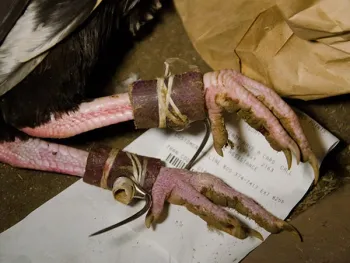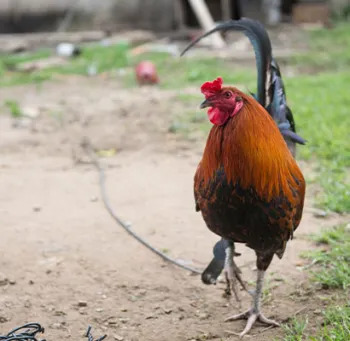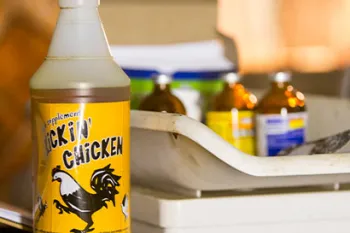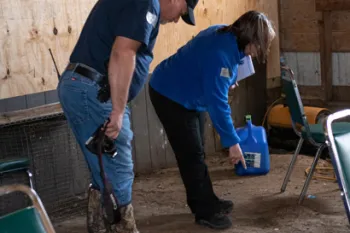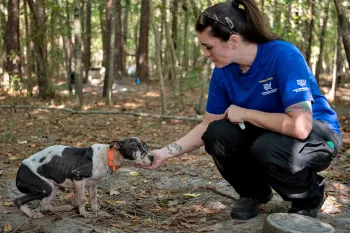Animal suffering and cockfighting
Saved from a horrible fate
Warning: Graphic video of animal fighting in America.
Kathy Milani/Humane World for Animals
Fighting for their lives
How can we get cockfighting taken more seriously? In addition to the cruelty to gamecocks, criminal activity is common at cockfights, including drug trafficking, illegal weapons sales, assaults and thefts.
Common excuses from cockfighters
Birds are natural fighters
While birds will fight over food, territory or mates, such fights are generally only to establish dominance within a group (the pecking order) and seldom result in serious injury. This natural behavior is quite different from what happens in staged cockfights, where the animal’s will to survive is exploited. Winning gamebirds are a result of artificial selection—intentionally bred for maximum aggression.
Cockfights are part of our culture/heritage
While it is true that cockfighting has been practiced for centuries in various countries, including the United States, "old" does not necessarily mean right or even acceptable. Heritage cannot be a defense for inexcusable, intentional abuse for the sake of entertainment. Cockfights are centered on animal suffering and apologists try to dress it up as tradition to disguise and excuse the egregious cruelty they inflict. By passing strong laws against animal fighting, federal and state governments have declared that it no longer has a place in our society.
Cockfights and the spread of disease
Those who raise and sell roosters for fighting maintain hundreds, sometimes thousands, of birds—creating an ideal environment for the spread of disease. Birds are regularly sold and transported across state lines to fight in bloody cockfighting matches with no regulation or oversight. The fights themselves involve uniquely unsanitary practices such as cockfighters handling bloody, mutilated birds and putting their mouths over injured roosters’ beaks to suck fluids from their airways.
Your gift can do so much for animals in need
Start saving lives by making a one-time gift today. You can also help animals all year long with a monthly contribution.
Meredith Lee/Humane World for Animals

